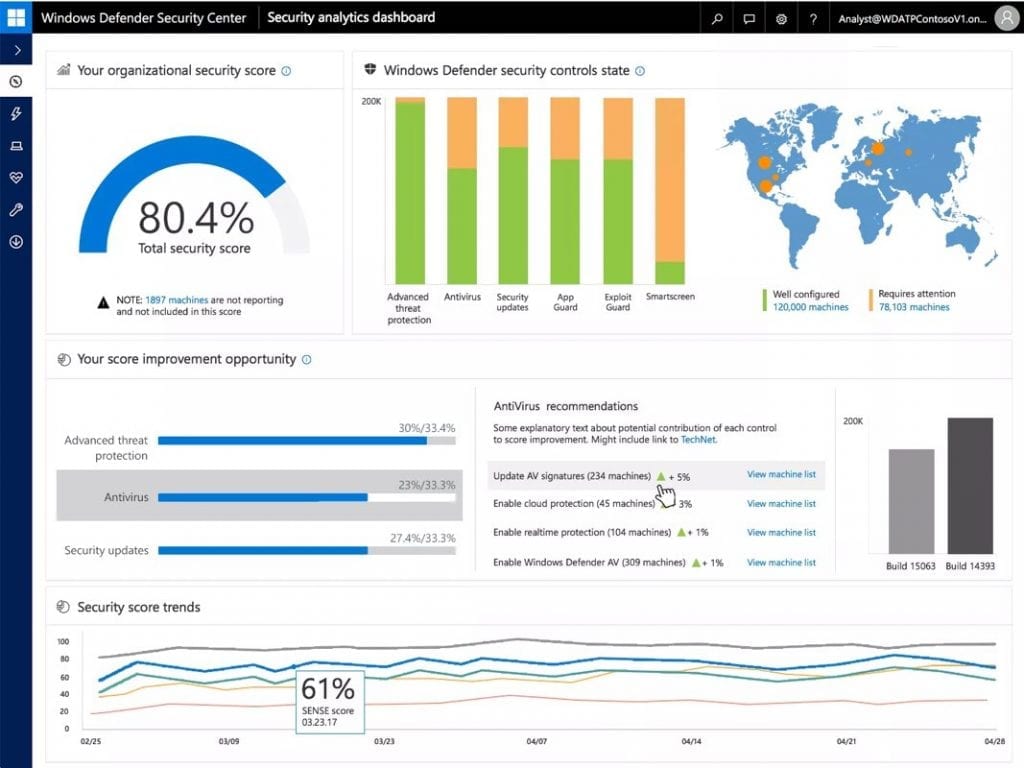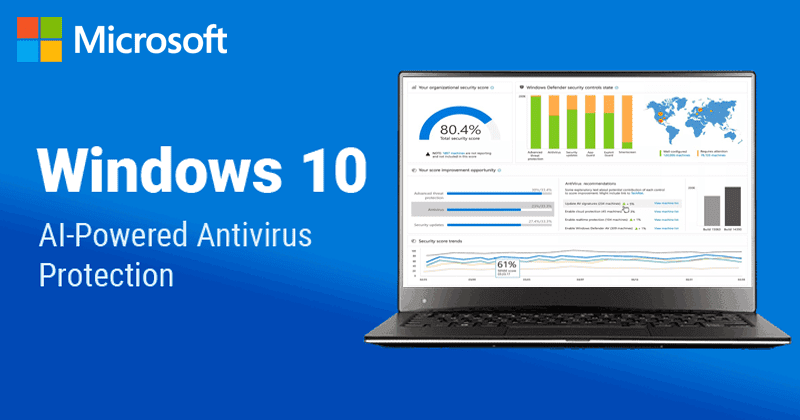We all know that the recent cases of major cyber attacks on the tech giant Microsoft’s Windows computer systems such as WannaCry or Petya have once again shown the vital need for the strong security measures that protect users. Hence, Microsoft is developing AI Antivirus using 400 million PCs.
Microsoft Is Building AI Antivirus Using 400 Million PCs
Recent cases of attacks on the tech giant Microsoft’s Windows computers such as WannaCry or Petya have once again shown the need for strong security measures that protect users.
In addition to the obvious updates, the tech giant Microsoft now wants to make sure it detects these attacks in advance and can react before the problems arise. For this purpose, the tech giant Microsoft is preparing a solution that will resort to artificial intelligence and the information gathered from the thousands of PCs running the tech giant Microsoft’s Windows operating system.
The idea of the tech giant Microsoft is simple, as the tech giant Microsoft explained, that it aims to eliminate global-scale attacks that have hit its users. By gathering information about the behavior of applications and services within Windows, it will be able to analyze, predict and mitigate the major and severe attacks such as those made with WannaCry or Petya.
In order to do this, it will be necessary to put in the next big update of Windows 10, of course, the Fall Creator Update, that will arrive between the month of September and October of this year 2017, several mechanisms to analyze the behavior of Windows and to be able to foresee these major and severe attacks.
Specifically, Windows 10 will feature elements of Windows Defender Advanced Threat Protection, which will be powered by data from the tech giant Microsoft applications, Azure and Endpoint. In all the tech giant Microsoft will be able to have data from more than 400,000 computers and will be able to analyze them using Artificial Intelligence simply to detect threats.

Whenever abnormal behavior in an application will be detected, simply it will be sent to the tech giant Microsoft to analyze and evaluate. Of course, with all the information collected on all computers in this data network, the tech giant Microsoft will be able to evaluate and take protective measures more quickly and securely.
These new features will also extend to access to the Internet Explorer and the Edge browser, thus ensuring a further level of extended protection.
As it is normal in these situations, these new features will be available first to business users. It is expected that in a quick period, soon these new features will be extended to all Windows users in its other several versions.
So, what do you think about this? Will these new security measures help the tech giant Microsoft to foresee the major attacks? If so happens, will the tech giant Microsoft be able to protect its users? Simply share your views and thoughts in the comment section below.



